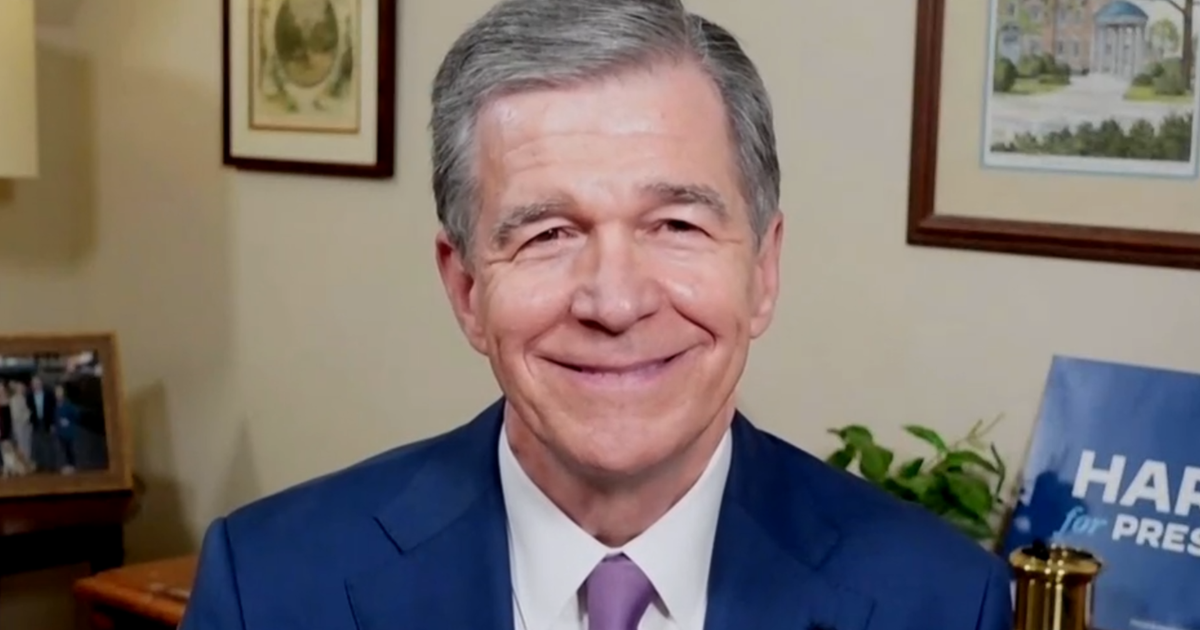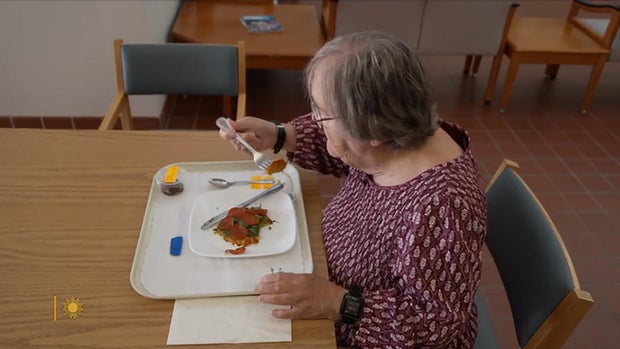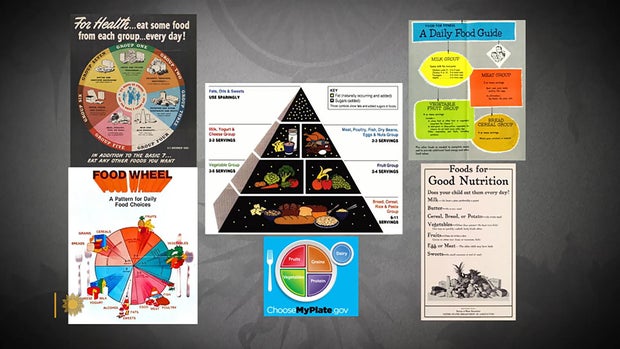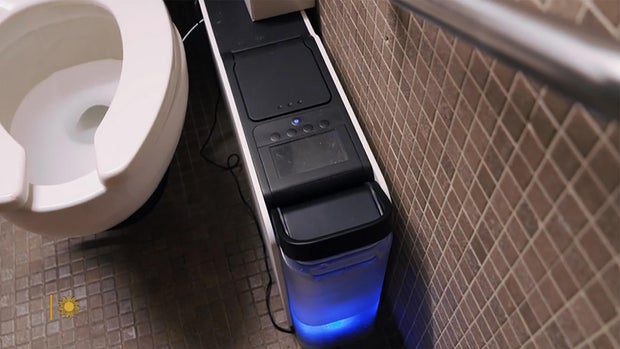CBS News
Transcript: North Carolina Gov. Roy Cooper on “Face the Nation with Margaret Brennan,” Sept. 8, 2024

The following is a transcript of an interview with North Carolina Gov. Roy Cooper, a Democrat, on “Face the Nation with Margaret Brennan” that aired on Sept. 8, 2024.
MARGARET BRENNAN: And we go now to the Governor Roy Cooper of North Carolina, a battleground state. He joins us from rally, good morning to you, Governor.
GOV. ROY COOPER: Margaret, good morning.
MARGARET BRENNAN: Vice President Harris will be in your state, Thursday. We know this is a consequential week. Debates can be catastrophic. They can be inconsequential. Do you anticipate the average North Carolinian is open to persuasion or even watching what happens on that debate stage this week?
GOV. ROY COOPER: There’s no question about it. It’s close here in North Carolina. It always is. This was Biden Harris’s closest loss in 2020 only 1.3%. So the fact that Kamala Harris, as Vice President of the United States, has been to North Carolina 17 times shows that she cares about our state. She knows that we are in play. And she knows that if she wins North Carolina, she is the next President of the United States because Trump has no other pathway.
MARGARET BRENNAN: Is it winning or is it just reducing the amount by which they lose rural voters? You have a very large rural population in your state
GOV. ROY COOPER: And you know, things that the Biden Harris administration has done has helped our rural population. I’ve been able to expand Medicaid here in North Carolina that’s helped working rural North Carolinians. We’re getting high speed internet all across our state. That’s something that people are beginning to find out about. And she’s got a plan. She’s got a plan to lower costs for North Carolinians, particularly in this childcare arena, drug pricing. We’re excited about the economic plan that she has,
MARGARET BRENNAN: Yeah–
GOV. ROY COOPER: –and I think North Carolinians will respond to it.
MARGARET BRENNAN: Well, I want to ask you more about some of that, because our latest CBS polling shows it is a very, very tight race, and it is the issue of economy and inflation that is weighing the most on voters. So we’re going to talk about that in a few minutes, when we take this break and we’ll come back to finish it with you, Governor. Stay with us.
[COMMERCIAL BREAK]
MARGARET BRENNAN: Welcome back to Face The Nation. We continue our conversation with the Democratic governor of North Carolina, Roy Cooper. Governor, our CBS polling shows this is still a competitive race for Donald Trump, largely because of those voters who just don’t think they are better off financially right now. Their incomes are not keeping up with inflation. This is especially true among non-college and white and working class voters. How do Democrats change this perception?
GOV. ROY COOPER: Well, I think that same poll, Margaret, said that people had more trust in Kamala Harris to help the middle class, and as she spends time getting out her economic plan of shifting the tax burden here, we need to make sure that billionaires and corporations pay their fair share and that everyday people and small businesses get The tax benefits. As she talks about her childcare plan and providing childcare tax credits, you’ve got Donald Trump, who clearly doesn’t understand the problem. You got JD Vance, who’s saying, well, you should get your grandparents or your aunts or uncles to look after children. Completely clueless. When we continue to get this information out to the American public, and to people here in North Carolina, that Kamala Harris has an economic plan that’s going to help lower the cost for everyday people, that’s going to help families thrive, that is going to protect women’s reproductive freedom. I think at the end of the day, that’s going to be what works here.
MARGARET BRENNAN: Well you got a short period of time to do that, sir, in this election. One of the things that we did hear about from the Vice President this past week was her endorsement of a less dramatic increase in the capital gains tax rate than what Joe Biden had proposed. This is a tax on assets owned for more than a year, on households bringing in over a million dollars in income. Now, the Vice President hasn’t said whether she supports Biden’s proposal to tax unrealized gains. That’s getting a lot of focus from Republicans. I’m just wondering, though, is this announcement and positioning really just an attempt to appear more moderate? To appear more pro business? Is it just a political ploy?
GOV. ROY COOPER: I think what Kamala Harris found out in the period of time, the three and a half plus years that she’s been Vice President, that you have to achieve consensus to get things done. And that’s exactly what she’s been able to do. Overall, what she wants to do is to shift the burden here. Clearly, the billionaires are not paying their fair share. And we’ve got to figure out a way to make sure that we can get them to do that while easing the burden on the middle class. And the way you do that is to try to find consensus. Because, as you know, it’s very tough to get legislation through both the House and the Senate. And that will continue to be a challenge, but she’s shown that she’s got the ability to help do that. Tim Walz was in the, was in the Congress, so he’s got the ability to help push legislation that helps shift this balance. So I’m excited about the potential for them being president and vice president of the United States.
MARGARET BRENNAN: Well and having to work with Congress. I want to ask you about guns. We saw this horrific shooting in Georgia this past week, and the father of that shooter is facing second degree murder and other charges because he gave his son that AR-15 style weapon that was used. You’re a former State Attorney General, and I wonder what you think of this, this precedent of prosecuting parents? Do you think it’s effective in dissuading gun violence?
GOV. ROY COOPER: I think we have to do everything we can to reduce gun violence, particularly gun violence in our schools. And I think that that is appropriate, but we also know that these military style assault weapons are being used by lots of people. They can kill multiple people. We don’t need to have them on the streets. Look, you can’t be tough on crime if you’re weak on gun laws. Vice President Harris and I here in North Carolina, as a gun owner, as the supporter of the Second Amendment, support stronger background checks, red flag laws and banning these military style assault weapons. We shouldn’t even have them available for people to use in these mass murders that are occurring. I’m tired of seeing texts from children in a school telling their parents that they’re afraid and that they love them. We cannot normalize this. JD Vance says this is just a fact of life. No it’s not–
MARGARET BRENNAN: –Well no he said, he said he regrets that it’s become a fact of life. But, but you do agree then with prosecuting parents, is what I understand from what you just said there.
GOV. ROY COOPER: Look, if the if, if the evidence is there, yes, okay, we need to make sure that people are responsible. If you’re giving a 14 year old. And I don’t know what all of the evidence is here, obviously you got to wait until the court. But if you’re giving a 14 year old, particularly one who said that they are involved or like mass shootings, and you’re giving that 14 year old an AR-15 as a birthday present. That is a problem.
MARGARET BRENNAN: Would you serve, perhaps as Attorney General in a future Harris administration?
GOV. ROY COOPER: Look, I’m gonna, I’m gonna be involved in some kind of public service. I’m running through the tape as governor. It’s a lot for me to do. Gonna work to make sure that we elect Kamala Harris as president. Elect Democrats in North Carolina, then we’ll see.
MARGARET BRENNAN: Alright, Governor, thank you for your time. We’ll be right back.
CBS News
A study to devise nutritional guidance just for you

It’s been said the best meals come from the heart, not from a recipe book. But at this USDA kitchen, there’s no pinch of this, dash of that, no dollops or smidgens of anything. Here, nutritionists in white coats painstakingly measure every single ingredient, down to the tenth of a gram.
Sheryn Stover is expected to eat every crumb of her pizza; any tiny morsels she does miss go back to the kitchen, where they’re scrutinized like evidence of some dietary crime.
Stover (or participant #8180, as she’s known) is one of some 10,000 volunteers enrolled in a $170 million nutrition study run by the National Institutes of Health. “At 78, not many people get to do studies that are going to affect a great amount of people, and I thought this was a great opportunity to do that,” she said.
CBS News
It’s called the Nutrition for Precision Health Study. “When I tell people about the study, the reaction usually is, ‘Oh, that’s so cool, can I do it?'” said coordinator Holly Nicastro.
She explained just what “precise” precisely means: “Precision nutrition means tailoring nutrition or dietary guidance to the individual.”
The government has long offered guidelines to help us eat better. In the 1940s we had the “Basic 7.” In the ’50s, the “Basic 4.” We’ve had the “Food Wheel,” the “Food Pyramid,” and currently, “My Plate.”
CBS News
They’re all well-intentioned, except they’re all based on averages – what works best for most people, most of the time. But according to Nicastro, there is no one best way to eat. “We know from virtually every nutrition study ever conducted, we have inner individual variability,” she said. “That means we have some people that are going to respond, and some people that aren’t. There’s no one-size-fits-all.”
The study’s participants, like Stover, are all being drawn from another NIH study program called All Of Us, a massive undertaking to create a database of at least a million people who are volunteering everything from their electronic health records to their DNA. It was from that All of Us research that Stover discovered she has the gene that makes some foods taste bitter, which could explain why she ate more of one kind of food than another.
Professor Sai Das, who oversees the study at Tufts University, says the goal of precision nutrition is to drill down even deeper into those individual differences. “We’re moving away from just saying everybody go do this, to being able to say, ‘Okay, if you have X, Y and Z characteristics, then you’re more likely to respond to a diet, and somebody else that has A, B and C characteristics will be responding to the diet differently,'” Das said.
It’s a big commitment for Stover, who is one of 150 people being paid to live at a handful of test sites around the country for six weeks – two weeks at a time. It’s so precise she can’t even go for a walk without a dietary chaperone. “Well, you could stop and buy candy … God forbid, you can’t do that!” she laughed.
While she’s here, everything from her resting metabolic rate, her body fat percentage, her bone mineral content, even the microbes in her gut (digested by a machine that essentially is a smart toilet paper reading device) are being analyzed for how hers may differ from someone else’s.
Nicastro said, “We really think that what’s going on in your poop is going to tell us a lot of information about your health and how you respond to food.”
CBS News
Stover says she doesn’t mind, except for the odd sounds the machine makes. While she is a live-in participant, thousands of others are participating from their homes, where electronic wearables track all kinds of health data, including special glasses that record everything they eat, activated when someone starts chewing. Artificial intelligence can then be used to determine not only which foods the person is eating, but how many calories are consumed.
This study is expected to be wrapped up by 2027, and because of it, we may indeed know not only to eat more fruits and vegetables, but what combination of foods is really best for us. The question that even Holly Nicastro can’t answer is, will we listen? “You can lead a horse to water; you can’t make them drink,” she said. “We can tailor the interventions all day. But one hypothesis I have is that if the guidance is tailored to the individual, it’s going to make that individual more likely to follow it, because this is for me, this was designed for me.”
For more info:
Story produced by Mark Hudspeth. Editor: Ed Givnish.
“Sunday Morning” 2024 “Food Issue” recipe index
Delicious menu suggestions from top chefs, cookbook authors, food writers, restaurateurs, and the editors of Food & Wine magazine.
CBS News
A new generation of shopping cart, with GPS and AI

Watch CBS News
Be the first to know
Get browser notifications for breaking news, live events, and exclusive reporting.
CBS News
“All hands on deck” for Idaho’s annual potato harvest

Watch CBS News
Be the first to know
Get browser notifications for breaking news, live events, and exclusive reporting.





